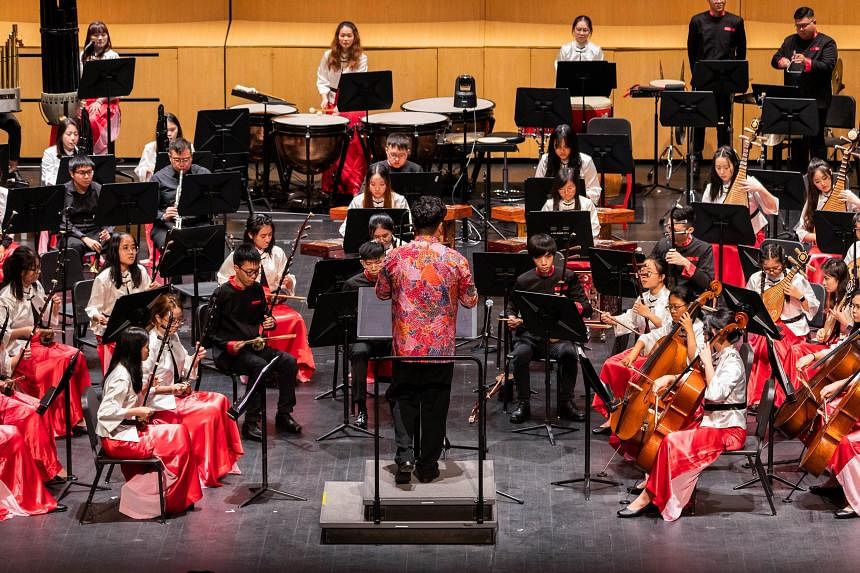SINGAPORE — Undergraduates at the National University of Singapore (NUS) will have the option to take a second major or minor in performing arts, as part of a new initiative by the university to integrate the arts into their learning.
Credit-bearing performing arts courses, which are currently offered for four groups, have been made available to students since August 2023, which help them fulfil elective requirements for their undergraduate education, said NUS in a statement on March 7.
The four groups are Chinese dance, Chinese orchestra, symphony orchestra and wind symphony.
More than just artistic performance, these courses assess students on active contribution, engagement, and their ability to collaborate with others, NUS said.
In place of typical lectures or seminars, each performing arts group follows regular training routines, such as combined rehearsals and sectionals, where members of the same section practise together.
Some 160 students are currently enrolled in these four credit-bearing groups, said NUS, and it is hoping to expand the number of eligible groups. It currently has 32 performing arts groups directly managed by the NUS Office of Student Affairs Centre for the Arts (CFA).
From August 2024, these course credits earned can be stacked towards a second major or minor in performing arts, as part of a broader move called “Arts For All” by NUS CFA to increase students’ participation in the arts and enhance interdisciplinary learning.
Students have the option to engage in performing arts at four levels, starting with “affiliate activities” in the form of student-led groups, then progressing to non-credit bearing group activities for more structured engagement and community initiatives. Those seeking a structured academic approach can join credit-bearing group activities, or pursue a second major or minor in performing arts.
Associate Professor Chan Tze Law, NUS’ vice-dean of students, told The Straits Times in an interview on Feb 27 that these opportunities at different levels will broaden students’ access to the arts on a “spectrum”.
“On one end, students enjoy entry-level access to the arts where they can form interest groups on their own,” said Prof Chan, adding that this allows for greater experimentation and does not require prior experience.
Prof Chan, who also oversees the CFA, said the entry-level groups, or affiliates, will have the potential to become a more formalised group with more steady funding.
Groups are recognised as credit-bearing when they have “demonstrated a commitment to their art form resulting in consistently exemplary creative output, and have rigorous, structured and comprehensive training frameworks”, said NUS.
Prof Chan, who is also vice-dean and founding faculty member of NUS’ Yong Siew Toh Conservatory of Music, said: “The flexibility of earning a second major or a minor in performing arts will greatly benefit students who wish to pursue careers that emphasise creativity after graduation, and also reflect their artistic commitment during their undergraduate studies.”
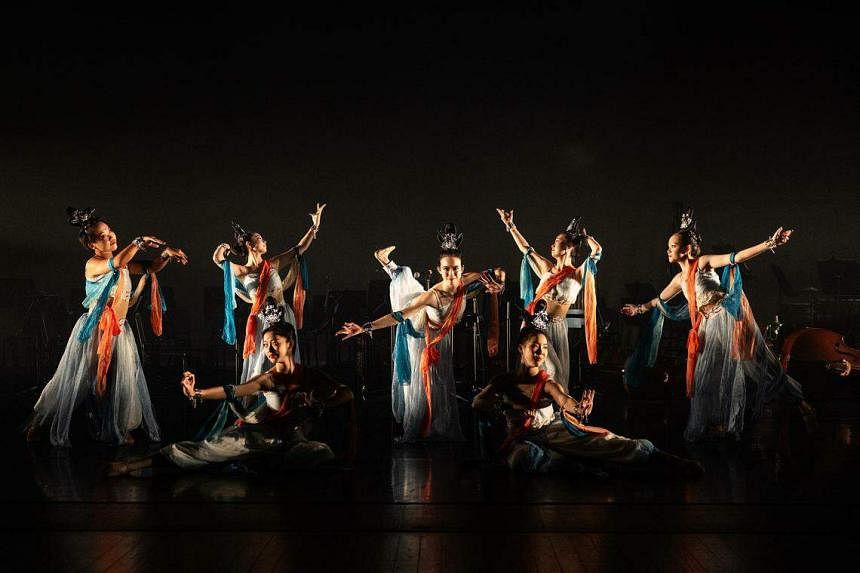
Chinese orchestra member Huang Chao Hung, 23, said the credit-bearing course curriculum helps him learn more valuable skills such as concert planning and audience engagement, going beyond regular practice.
While he acknowledges the stress of being graded, Mr Huang, a second-year data science student, said the grading will motivate students further.
“Having grading is a way to make people step out of their comfort zone and try new things that they have not tried before, while still providing a safe environment for students to explore,” he said, sharing an example of being involved in designing a concert programme for an audience of Primary 6 pupils, where he had to apply skills learnt in the course.
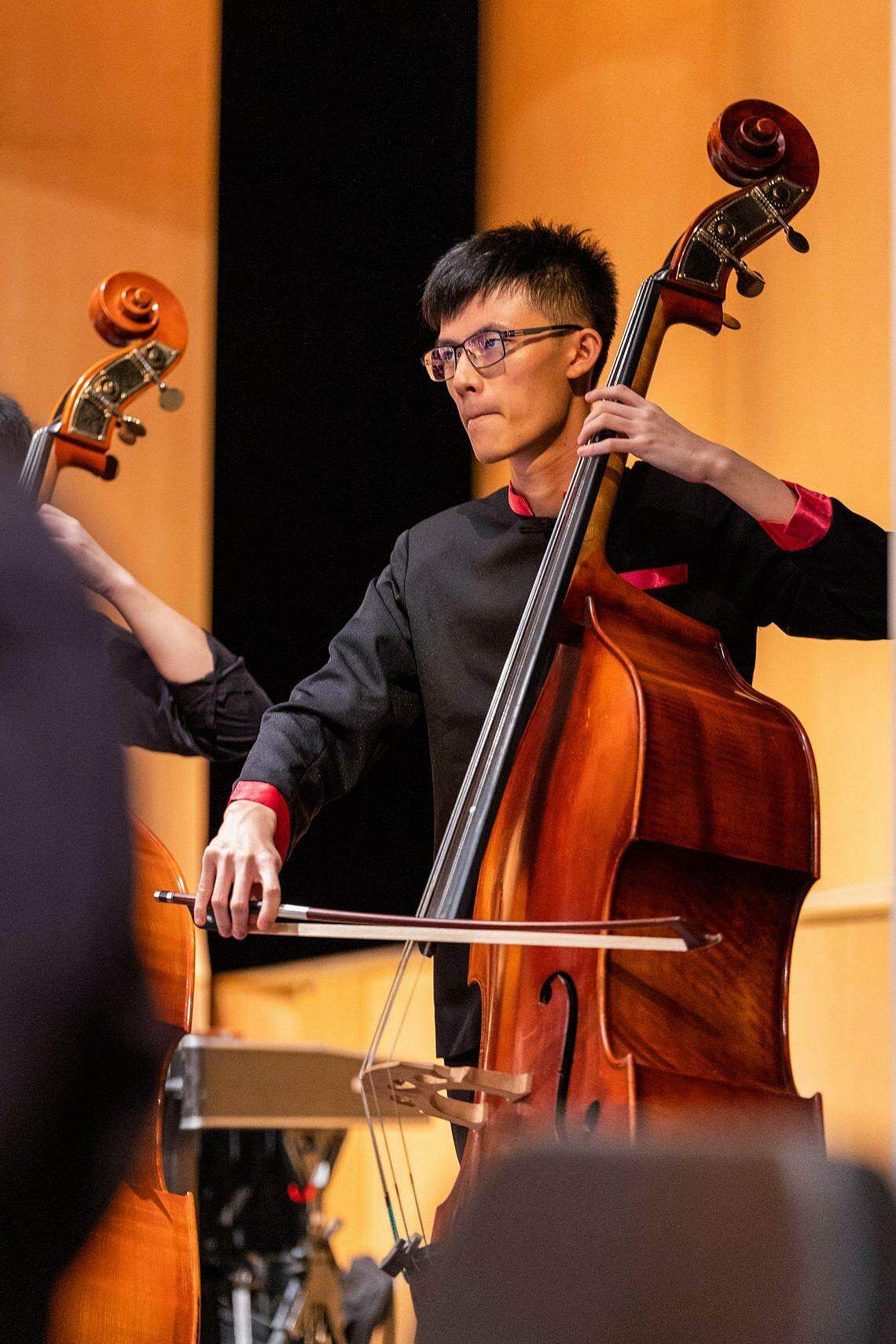
Second-year NUS life sciences student Yong Fong Sin, 23, who is part of the Chinese dance troupe, said being graded is not daunting, and he sees it as a form of acknowledgement for his efforts and involvement.
It also represents recognition for Chinese dance, which he has learnt since Secondary 1, as an art form, added Mr Yong.
Students all have a switch in them, said Prof Chan, using an analogy of a person’s ability to unlock his or her potential in the arts.
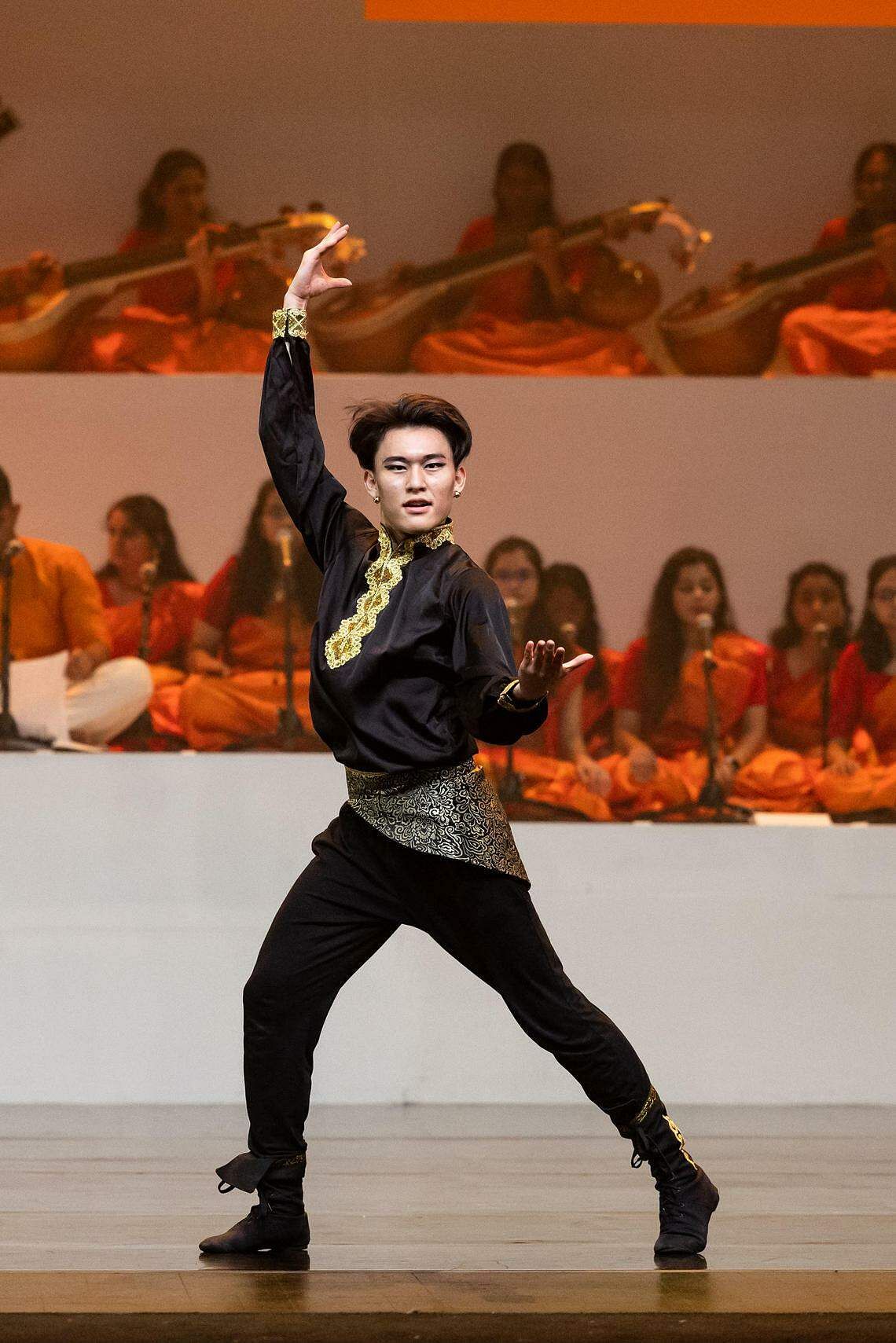
The hope is for students to have a “seamless” integration of their academic pursuits with their passions, without prioritising one over the other, he added.
Ms Sharmila Selvam, 21, who currently plays the trumpet for the NUS wind symphony, said she hopes that the new initiative will help students sustain their interest in the arts, apart from making it more widely accessible.
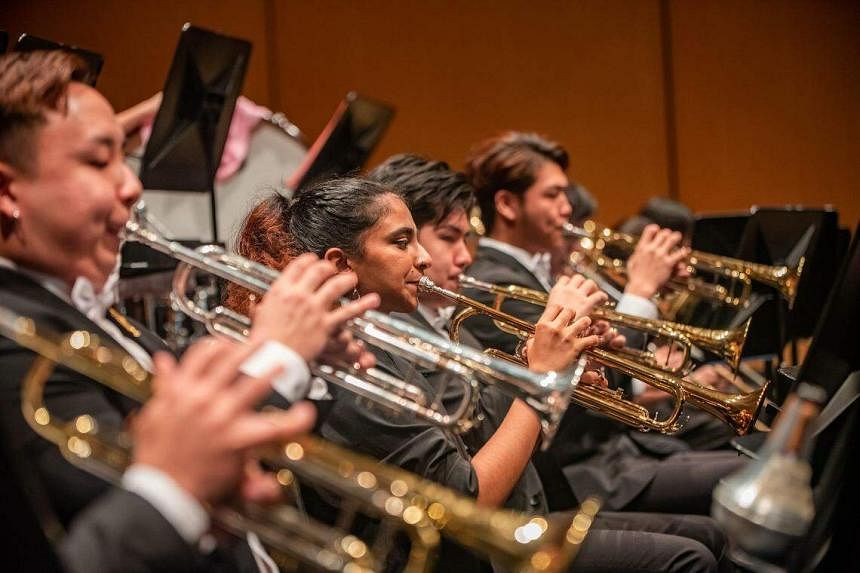
“I’ve been in the arts since primary school, and I’ve been in band and theatre for 10 to 12 years, and I have seen many people lose their passion for the arts because they are not motivated, even though they are very talented,” said Ms Selvam, who is a second-year engineering student.
Computer science student Ang Zien Xu, 21, who is a member of the NUS Symphony Orchestra, said he hopes for more performing opportunities and collaborations between performing arts groups, such as joint exhibitions or jam sessions, to expose students to more art forms.
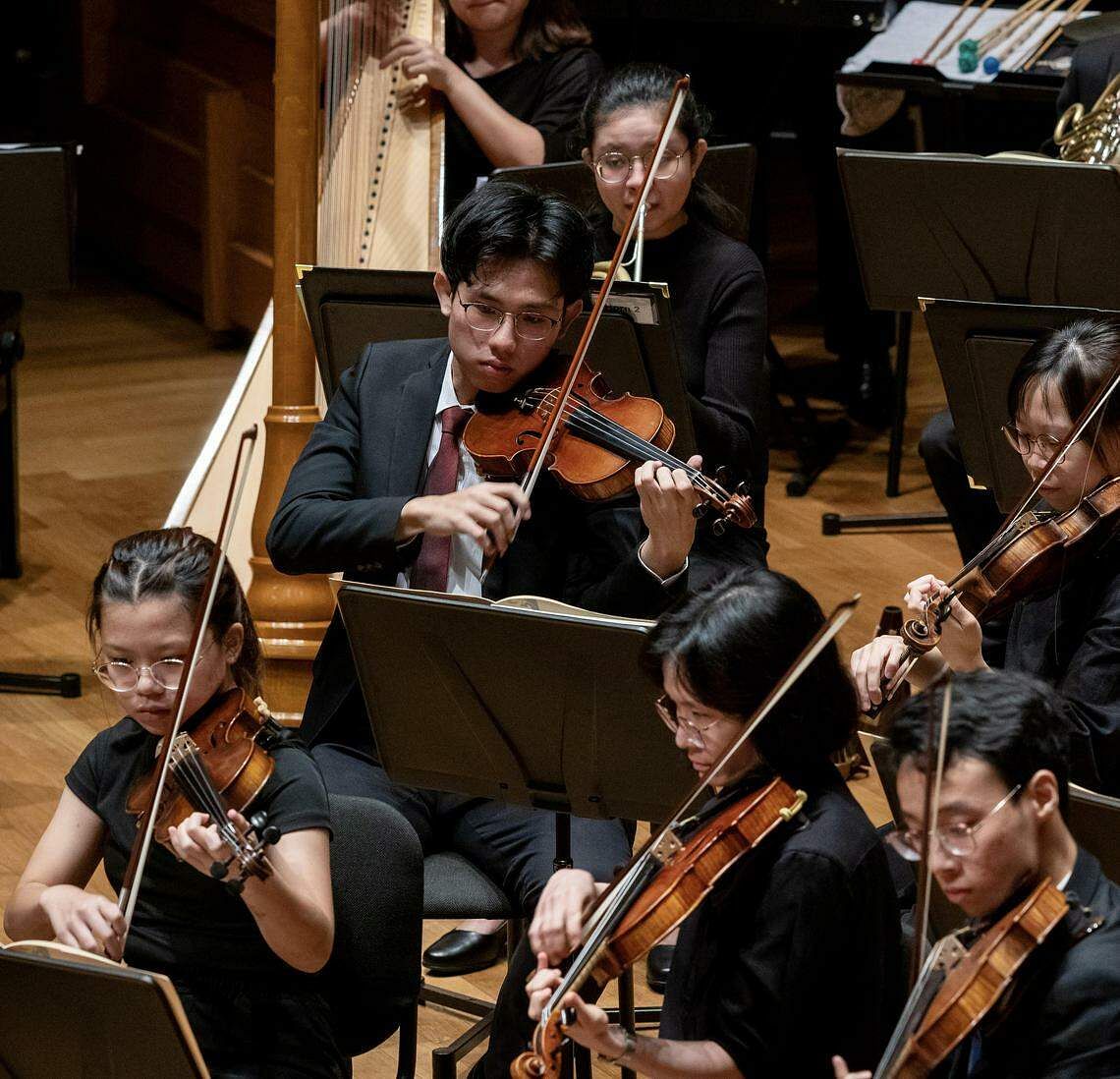
Mr Ang, who has been playing the violin since the age of five, said: “There is something magical about making music with others, where we can express ourselves without words and connect with one another.
“Here’s to a future where our passion for the arts can flourish, and our shared love for performing arts goes beyond any grading system.”
